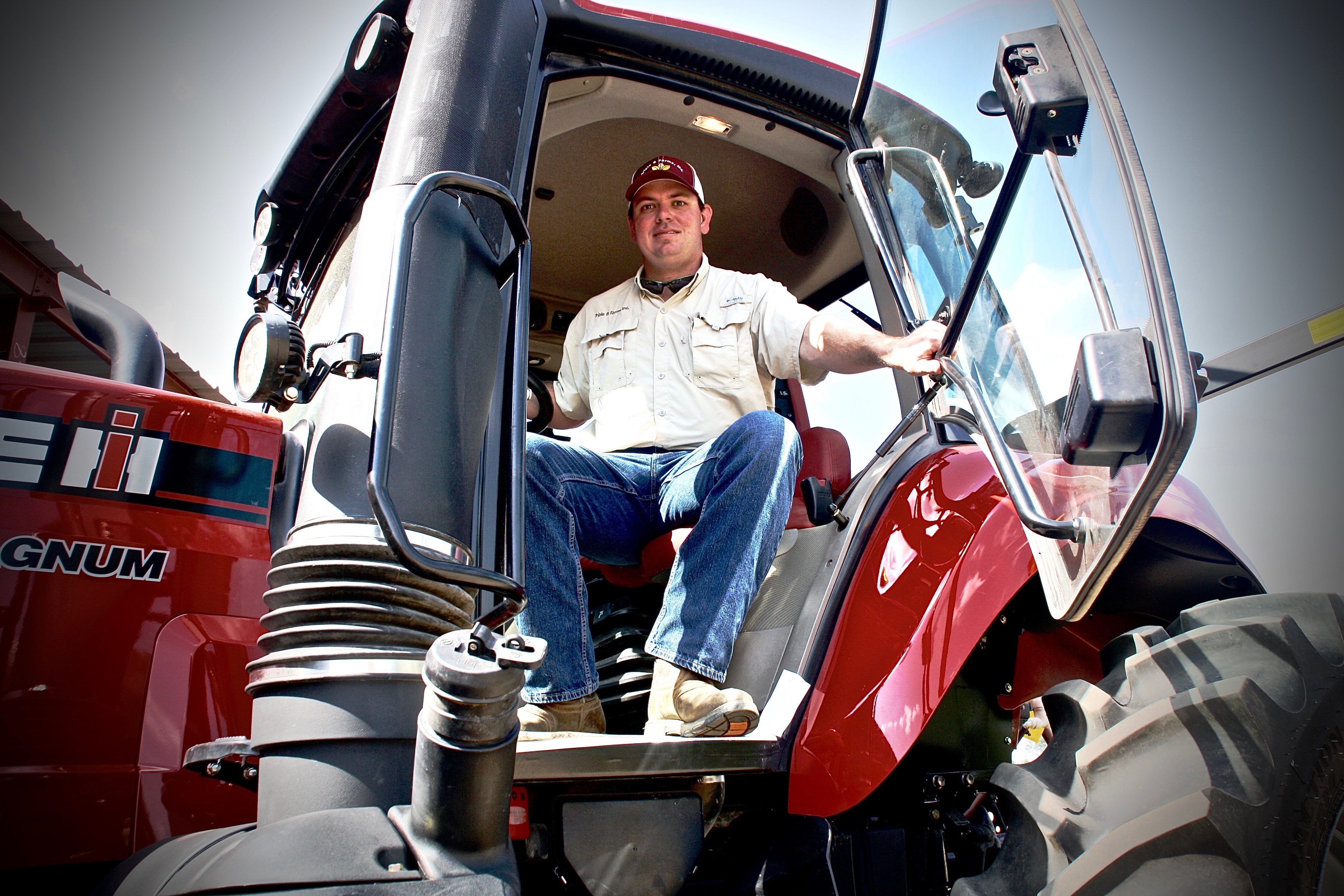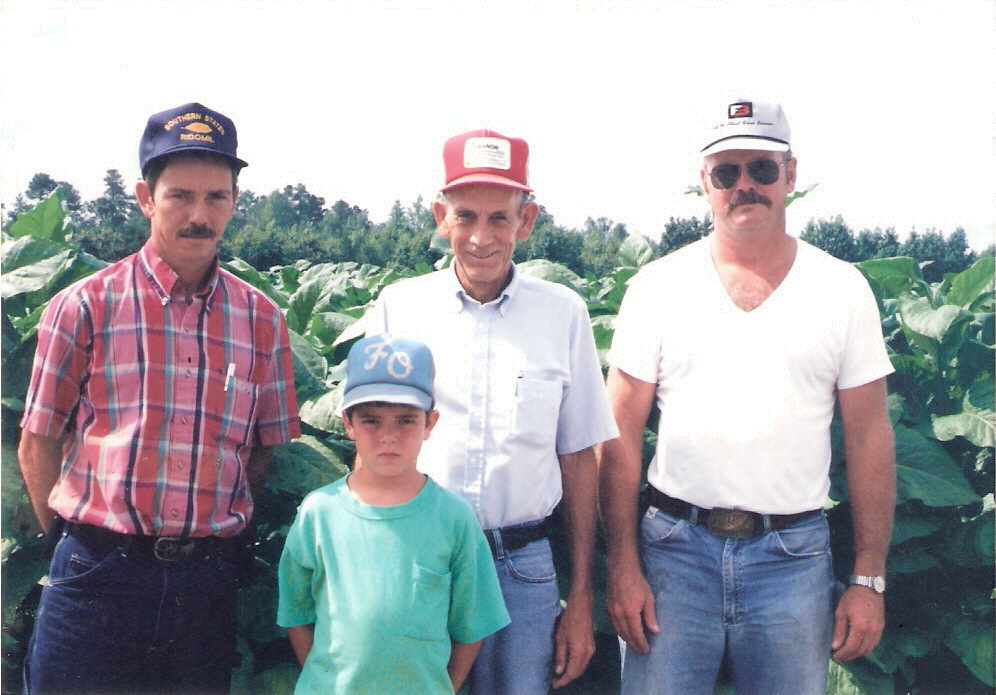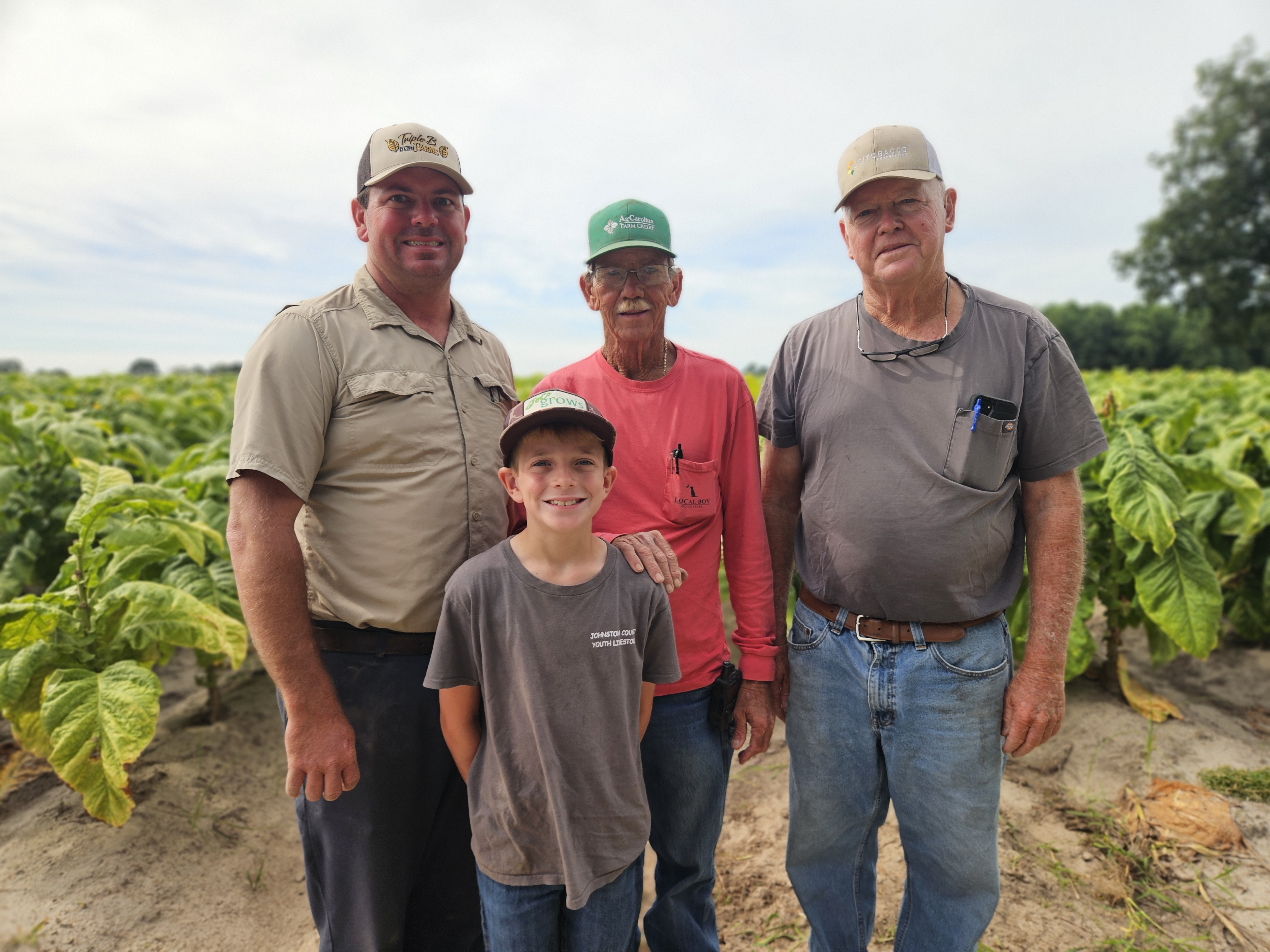Faces Behind Farm Policy: Brandon Batten
Celebrating its 40th year of business in February, Brandon Batten’s multi-generational family farm in eastern North Carolina is a diversified row crop operation producing corn, soybeans, wheat, rye, flue-cured tobacco, and grass hay, along with a beef cow-calf herd.
The family has adapted to changing markets in the last four decades, experimenting with sweet potatoes, hemp, cucumbers and cotton. Each decision is based on market demand, soil health and crop rotation.
Eastern North Carolina’s unique climate and soil offer farmers like Brandon the opportunity to diversify their operations with specialty crops and livestock.

One crop that has long shaped the Tar Heel State’s landscape is tobacco.
“Tobacco has always been a favorite crop for me,” Brandon said. “It grows so fast, and when I came home from college, that’s what we were focused on.
“But really, I just love watching anything grow. Springtime is my favorite season because the farm comes alive again.”
Farming has always been Brandon’s goal, but returning to his family’s operation wasn’t guaranteed. Encouraged by his grandfather to pursue higher education, he earned both a bachelor’s and master’s degree in agricultural engineering from North Carolina State University. In 2010, with support from his family and amid industry changes, Brandon returned to the farm full-time.
Since then, the operation has tripled in size and further diversified its crops.
“I truly believe the Lord put me on this earth to work in agriculture, and right now that’s farming,” said Brandon.
There are easier ways to make a living, Brandon admits, but none more rewarding than farming. It’s allowed him to raise his three children with the same values passed down by his father and grandfather.

His passion and drive to pursue agriculture originally was to continue his family’s operation and build upon that legacy, but fatherhood gave him a new perspective to “create and maintain a sustainable, viable operation,” so that one day, if his children choose to farm, they will have that same opportunity.
For Brandon, the greatest challenge is the growing disconnect between consumers and farmers.
“Less than 2% of the population farms, and without that connection, it’s hard for people to understand the tools and technology we use to feed the world.”
Brandon continues to be optimistic about the future. Technology and innovation are creating new opportunities, and more young people are finding ways to contribute to the industry whether in the field, in engineering or through marketing and communications.
“The next generation of farmers may look different than the ones before,” he said. “We need the best and brightest to continue to solve these challenges, there’s no bigger challenge than operating a profitable farm in 2025.”
Some of Brandon’s best memories are working alongside his grandfather, who taught him not only how to grow crops, but how to manage the business. Today, he sees history repeating itself as his own children ride along with their grandfather, learning those same lessons.
Sustainability, stewardship and service to the community remain at the heart of the operation. For Brandon, farming is more than just a business.
“I feel like I have no greater duty than to make the community I live in somewhere worth living,” he said. “That’s what farming, and being a good citizen, is all about.”
